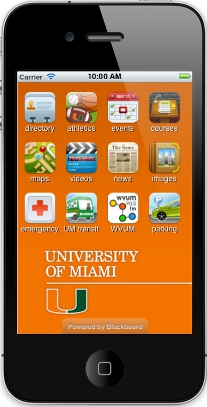Last year’s class’s employment numbers for the University of Miami School of Law are not wonderful, but they’re not hideous either. They are much better than reported by the ABA and echoed all over the internet today.
I have no idea if the error was in UM’s reporting or the ABA’s transcription, but I do know that the summary I saw in the National Law Journal’s report this morning, based on ABA data, does not have the correct numbers. [Update: The ABA admits it was their “transcription error” and is correcting it.]
Here are the correct data:
There were 385 graduates in the class of 2011.
Of these, 369 are known to be employed (369/385 = 95.8%). But, of that 369 with jobs, only 280 (75.9% of those with jobs, 72.7% of the entire class) are employed in jobs that required bar passage, 33 (8.9%) were employed in jobs where the JD was an advantage, 11 (3%) were employed in “other professional” positions and 4 (1.1%) were employed in “non-professional” jobs.
This 72-76% of the class with law jobs (or if you prefer the 313 with law-related jobs, 84.8% of job-holders, or 81.2% of all graduates), is well above the national average, even if it’s still lower than we’d like. Nationally,
Slightly more than half of the class of 2011 — 55 percent — found full-time, long-term jobs that require bar passage nine months after they graduated, according to employment figures released on June 18 by the American Bar Association.
The NLJ reports that we hired 23% of our own grads. I knew that couldn’t be right — nearly one out of four? where did we put them? — and sure enough, it’s not true. Somehow something got double-counted in the “law school/university funded position” row of the report. That report shows we hired 88 grads, but the correct number is actually half that: Last year, we hired 44 of our own grads (11.4%) for short or long-term jobs. The lion’s share of them were hired by the Legal Corps where they get placed with non-profits or governments and get work experience. While it’s too soon to know the results for the class of 2011, their predecessors in the class of 2010 did very well out of this experience, with many parlaying it to full-time employment.
I’m told that the error in the ABA form (I’ve attached a copy of the erroneous form) seems to be in the “part-time long term” law school funded box, where the ABA report has 44. The actual number is zero, making the total of that row 44, not 88. Thus, even if one takes out the 44 people from the 313 with law jobs (and I’m not sure one should, since the Legal Corps often does lead to permanent work), that still leaves 269 with law jobs, or 69.9% of the entire class. That is not at all good — but it still beats the national average of 55% by a decent margin.
I doubt this correction will ever catch up with the inaccurate info, but there it is.

 Maybe everyone else knew, but I was surprised to learn that
Maybe everyone else knew, but I was surprised to learn that  The University of Chicago Press has sent me an unsolicited review copy of Failing Law Schools by Brian Tamanaha, his much-awaited, and already much-discussed, account of what’s wrong with legal education.
The University of Chicago Press has sent me an unsolicited review copy of Failing Law Schools by Brian Tamanaha, his much-awaited, and already much-discussed, account of what’s wrong with legal education.